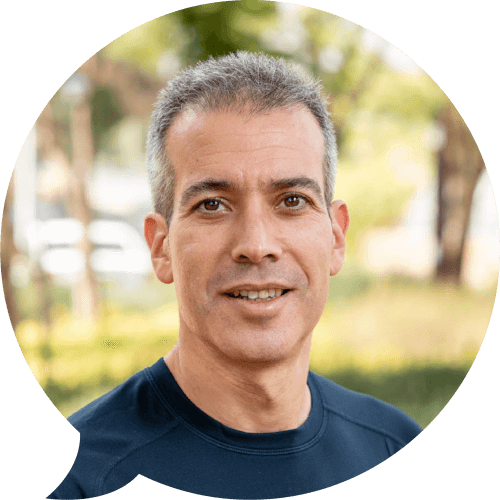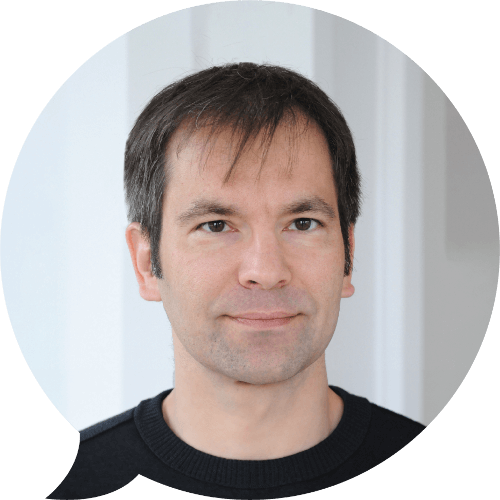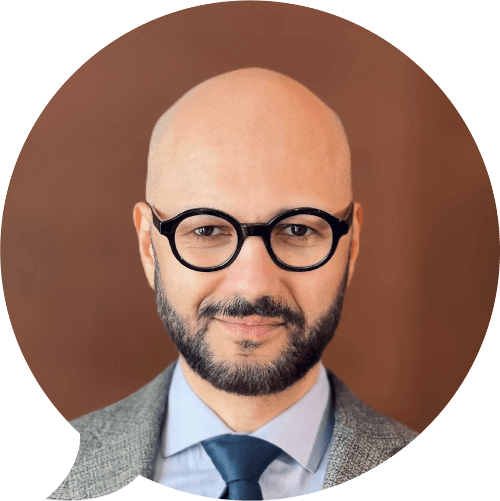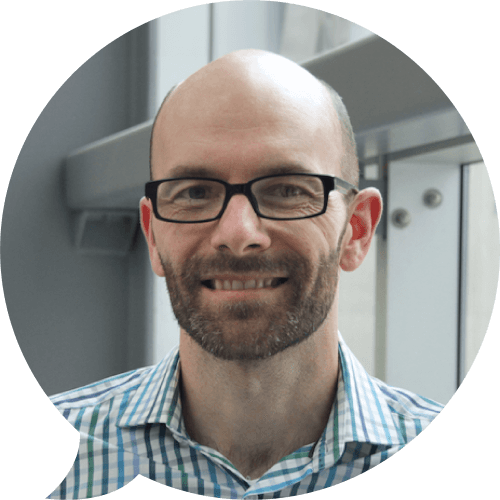Clinical Pharmacogenomics with Dr. Bani Tamraz
When UCSF Health launched their Clinical Pharmacogenetics program Dr. Bani Tamraz played an integral role in it's implementation, leading their team to be one of the first in California to provide Drug-Gene Testing.
Join us in conversation with Dr. Bani Tamraz as we explore the launch and what's changed since they started this work. We'll dive into the identification of genetic determinants of drug response through modern methods to address pharmacogenetics research and discuss how it can be used to translate information into new diagnostic treatment strategies at point-of-care.
Total Time: About 60 Minutes
Dr. Bani Tamraz
An Associate Professor of Clinical Pharmacy and Director of Pharmacogenomics at UCSF School of Pharmacy, Dr. Bani Tamraz completed his Pharm.D., and clinical practice residency at UCSF and UCSF Medical Center. Following residency, he pursued a Ph.D. in Pharmaceutical Sciences & Pharmacogenomic at Institute of Human Genetics at UCSF. With interest & work in the field of pharmacogenetics (PGx) research and clinical practice.

Personalized Medicine Based on Deep Human Phenotyping, with Eran Segal of the Weizmann Institute
Recent technological advances allow large cohorts of human individuals to be profiled, presenting many challenges and opportunities.
We'll dive into the Human Phenotype Project, a large-scale (>10,000 participants) deep-phenotype prospective longitudinal cohort and biobank that we established, aimed at identifying novel molecular markers with diagnostic, prognostic and therapeutic value, and at developing prediction models for disease onset and progression. Our deep profiling includes medical history, lifestyle and nutritional habits, vital signs, anthropometrics, blood tests, continuous glucose and sleep monitoring, and molecular profiling of the transcriptome, genetics, gut and oral microbiome, metabolome and immune system. Our analyses of this data provide novel insights into potential drivers of obesity, diabetes, and heart disease, and identify hundreds of novel markers at the microbiome, metabolite, and immune system level. Overall, our predictive models can be translated into personalized disease prevention and treatment plans, and to the development of new therapeutic modalities based on metabolites and the microbiome.
Join us in conversation with Prof. Eran Segal as we explore Personalized Medicine Based on Deep Human Phenotyping
Total Time: About 60 Minutes
Prof. Eran Segal
Eran Segal is a Professor at the Department of Computer Science and Applied Mathematics at the Weizmann Institute of Science, heading a lab with a multi-disciplinary team of computational biologists and experimental scientists in the area of Computational and Systems biology. His group has extensive experience in machine learning, computational biology, and analysis of heterogeneous high-throughput genomic data. His research focuses on Microbiome, Nutrition, Genetics, and their effect on health and disease. His aim is to develop personalized medicine based on data from large-scale and deeply phenotyped human cohorts. Before joining the Weizmann Institute, Prof. Segal held an independent research position at Rockefeller University, New York.

AI in Precision Oncology with Genomate
Watch our chat with Barbara Vodicska, Ph.D., Dr. Sean Khozin, Robert Doczi, Ph.D., and Dr. Istvan Petak, of Genomate, about the future outlook for AI in precision oncology.
Genomate helps oncologists determine the optimal targeted therapy for every cancer patient based on the individual molecular profile of their tumor. It's the world's first AI-powered clinical decision support system for precision oncology, transforming the lives of countless cancer patients. It is being developed by Genomate Health Inc, a team of experienced oncology, AI, and business professionals dedicated to revolutionizing cancer treatment and care for every patient.
Total Time: About 60 Minutes
Istvan Petak, CEO & Founder @ Genomate Health
Expert in precision oncology and molecular pharmacology of targeted therapies with 25+ years of experience. He is the founder and CEO of Genomate Health, Inc., founder and board director of Oncompass Medicine, Budapest, HU, and adjunct professor at the Department of Pharmaceutical Sciences at the University of Illinois at Chicago (UIC).

Barbara Vodicska, Head of Translational Science @ Genomate Health
Barbara Vodicska is a trained biochemical engineer with expertise in studying the molecular background of prion diseases and cancer. She completed her doctoral research at the German Cancer Research Center (DKFZ) in Heidelberg. Currently, she holds the position of Head of Translational Science at Genomate Health, where she contributes to research and development efforts focused on a software as a medical device. This revolutionary software aims to improve targeted therapy decisions in the field of precision oncology.

Robert Doczi, Head of Research @ Genomate Health Inc
Robert Doczi PhD is a molecular biologist with over 20 years' experience in cellular signaling. He is currently Head of Research at Genomate Health, where he is involved in the development and clinical validation of a novel computational method that implements cognitive computing in precision oncology. Previously he was a postdoctoral researcher at Vienna Biocenter (Austria) and was a Marie Curie Fellow at Royal Holloway, University of London (UK) and, before joining the company, he was a principal investigator at the Hungarian Academy of Sciences.

Sean Khozin, Advisor on Medical Affairs and Regulatory Strategy @ Genomate Health Inc
Dr. Sean Khozin is a globally recognized oncologist, data scientist, and physician-executive with extensive experience in therapeutic development and AI applications in biomedical research. As the founder of Phyusion and Senior Partner at Braven, he focuses on advancing innovations at the nexus of biology, technology, and AI. Previously, he was the CEO of CancerLinQ, the Global Head of Data Strategy at Johnson & Johnson, and a founding member of the US FDA's Oncology Center of Excellence in addition to serving as the founding executive director of INFORMED, FDA's first science and technology incubator. Dr. Khozin is the cofounder of the technology company Hello Health and founder of SKMD, a multidisciplinary network of clinics utilizing telemedicine and remote monitoring tools to improve patient outcomes. He is a Research Affiliate at MIT and started his clinical research work at the US National Cancer Institute developing molecular profiling strategies in thoracic malignancies.

Modulation of the Human Gut Microbiome with DNA Genotek
Lessons Learned from Longitudinal Modulation of the Human Gut Microbiome: Implications for Clinical Studies
The study of the human microbiome composition can be hindered by technical challenges that span sample collection, extraction, library preparation and analysis. These challenges are a significant source of bias that can have a deep impact on the conclusions of any study looking at modulating the microbiome. OraSure Technologies' Molecular Solutions team designed and executed a pilot study aimed at understanding the impact of intermittent fasting diet on the gut microbiome of healthy individuals through a multi-omics lens. This study leveraged DNA Genotek and Diversigen's extensive expertise in sample collection, processing and data analysis; highlighting best practices for effectively visualizing & interpreting the impact of diet on the composition and functional outputs of the gut microbiome.
Total Time: About 60 Minutes
Brice Le François, Senior R&D Manager @ DNA Genotek
As a senior R&D manager, Brice Le François leads a team working on novel technologies across DNA Genotek (devices) and Diversigen (services). His team spearheaded the development of novel tools and workflows as well as innovative preservation chemistries to facilitate multi-omics analyses of gut microbiome samples and beyond. Since joining the R&D team at DNA Genotek, he has worked extensively on optimizing the stabilization and processing of human microbiome samples and has acquired significant expertise in study design, selecting appropriate controls and workflows to generate insightful and reliable data. Prior to joining DNA Genotek, he obtained his Ph.D. in Biochemistry from the University of Ottawa and has over 20 years of experience in research across a wide range of fields, including cancer and neuroscience.

The Five Ws of Pharmacogenetic Testing with Chad Bousman
Pharmacogenomic testing in paediatric and adult clinical settings based on the current scientific evidence and real-world implementation experiences
Dr. Bousman is the Founder and CEO at Sequence2Script. Sequence2Script is a tool to help healthcare providers and clinical laboratories translate pharmacogenetic test results into clinically useful recommendations.
Total Time: About 60 Minutes
Chad Bousman, Associate Professor, Dept. of Medical Genetics at the University of Calgary @ Sequence2Script
Dr. Bousman is an Associate Professor in the Department of Medical Genetics at the University of Calgary, where he leads the Psychiatric Pharmacogenomics Laboratory. His program of research spans pharmacogenomic discovery and clinical implementation, with particular attention given to improving prescribing for mental health conditions across life stages. Dr. Bousman has published over 150 peer-reviewed papers and has received research support from numerous Canadian, US, and Australian funding bodies. He is a member of the American College of of Neuropsychopharmacology, Clinical Pharmacogenetics Implementation Consortium (CPIC), Pharmacogene Variation (PharmVar) Consortium, Pharmacogenomics Global Research Network (PGRN), and the Standardized Laboratory Practices in Pharmacogenomics (STRIPE) Collaborative. He is also the founder and CEO of Sequence2Script Inc, a software company that assists laboratories with translating pharmacogenomic information into clinical action.

